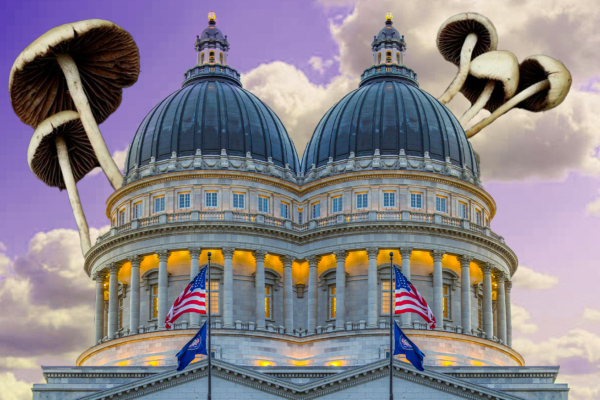
Michigan is proving to be a state to watch when it comes to decriminalizing psychedelics, with Detroit becoming the latest and largest municipality to join the movement.
The city will decriminalize the personal possession and therapeutic use of entheogenic plants by adults after the policy gained voter support on Tuesday.
Unofficial results from the ballot show that 61% of voters supported the measure, Proposal E, and 39% voted against it.
The ‘yes’ vote supports the City of Detroit to decriminalize entheogenic plants’ possession and therapeutic use and declares that police shall treat the possession and use of entheogenic plants by adults among the lowest law enforcement priorities.
Proposal E defines entheogenic plants as plants and fungi and their extracts, limited to those containing indole amines, tryptamines, and phenethylamines.
Decriminalize Nature Michigan — an organization campaigning for the statewide decriminalization of psychedelic substances in Michigan — welcomed the results of the vote. “We are excited by the amazing turnout of Detroit voters last night and we’re overwhelmed by the support for Proposal E,” Decriminalize Nature Michigan Co-Director Myc Williams told MLive. “This is the momentum we needed to keep going.”
Dr. John Huber, CEO of TripSitter Clinic, a ketamine telemedicine clinic that recently became available in Michigan, added: “The passage of this ballot measure in Detroit represents where everyday people are at as it relates to embracing non-traditional modalities of healing. Every local decriminalization law which passes serves to create a more equitable society: one that doesn’t judge or punish individuals for embarking on their own journey of healing.”
The decriminalization movement is growing across Michigan, with Detroit the largest city in the state to decriminalize entheogenic plants. In September 2020, Ann Arbor became the first Michigan city to approve the decriminalization of a range of psychedelics including ayahuasca, ibogaine, mescaline, peyote and psilocybin. The city also declared September to be Entheogenic Plant and Fungi Awareness Month to spread knowledge about the therapeutic benefits of plants and fungi.
Grand Rapids City Commissioners on September 28 also approved a resolution declaring their support for decriminalizing the use and possession of entheogenic plants and fungi at the local, state, and federal level. The resolution described entheogenic plants as: “The full spectrum of plants, fungi, and natural materials deserving reverence and respect from the perspective of the individual and the collective that can benefit psychological and physical wellness, can improve personal and spiritual wellbeing, and that can re-establish humans’ unalienable and direct relationship to nature.”
On a state level, a bill introduced in the Michigan Senate in September would allow the possession, cultivation, and delivery of entheogenic plants. The bill, SB 613, would not permit the commercial product and sale of these plants, excluding the exchange of money for counseling, spiritual guidance, or a related service. After being introduced, the bill was referred to the Committee on Judiciary and Public Safety and it is set to go before the State Senate’s Assembly next year.





